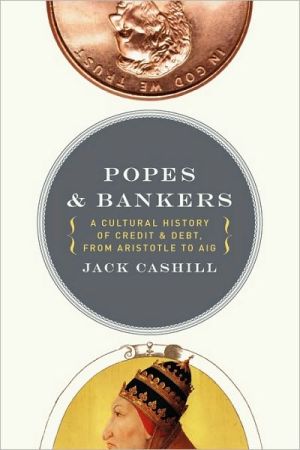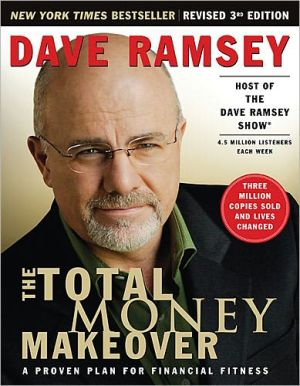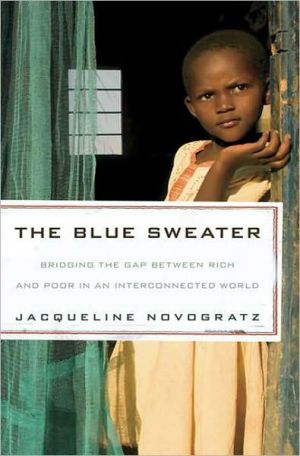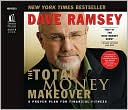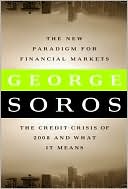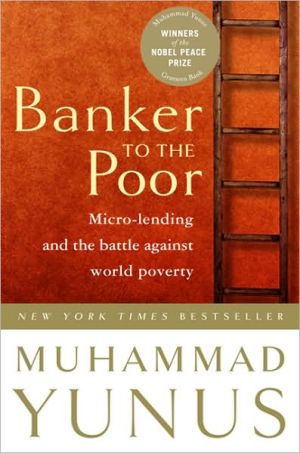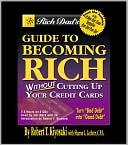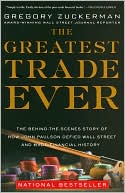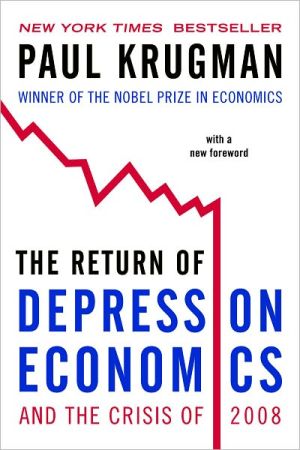Popes and Bankers: A Cultural History of Credit and Debt, from Aristotle to AIG
For the answer, Jack Cashill, a journalist as shrewd as he is seasoned, looks past the headlines and deep into pages of history and comes back with the goods. From Plato to payday loans, from Aristotle to AIG, from Shakespeare to the Salomon Brothers, from the Medici to Bernie Madoff-in Popes and Bankers Jack Cashill unfurls a fascinating story of credit and debt, usury and "the sordid love of gain."\ With a dizzying cast of characters, including church officials, gutter loan sharks, and even...
Search in google:
For the answer, Jack Cashill, a journalist as shrewd as he is seasoned looks past the headlines and deep into pages of history and come back with goods. From Plato to payday loans, from the Medici to Bernie Madoff in Popes and Bankers Jack Cashill infurls a fascinating story of credit and debt, usury and "the Sordid love of gain." With a dizzying cast of characters, including church officials, gutter loan sharks, and even the Knights Templar, Cashill traces the creative tension between "pious restraint" and "economic ambition" through the annals of human history and illuminated both the dark corners of our past and the duxty corners of our billfolds.
POPES & BANKERS\ A CULTURAL HISTORY OF CREDIT AND DEBIT FROM ARISTOTLE TO AIG \ \ By Jack Cashill \ Thomas Nelson\ Copyright © 2010 Jack Cashill\ All right reserved. \ ISBN: 978-1-59555-273-0 \ \ \ \ Chapter One\ The Seventh Circle \ Boston is the home of one Melonie Griffiths-Evans. Were she to die unrepentant, which seems likely, she might well find herself in the fourth circle of Dante's Inferno among the prodigals. A word used less today than it ought, prodigal simply means "given to excessive or imprudent spending." The prodigals have long been with us. "For, as has been said," Aristotle writes in the Nicomachean Ethics, "he is liberal who spends according to his substance and on the right objects; and he who exceeds is prodigal." Prodigals matter here because historically they have kept lenders in business. They still do.\ The ethics surrounding credit and debit-or debt, for our purposes-find expression in the oldest written records, those of the Greeks and the Hebrews. But the real history predates that, as the Mesopotamians kept records of borrowing and lending on stone tablets. And yet even when the terms of a loan were literally "written in stone," people sought to evade them, most typically prodigals like the aforementioned Ms. Griffiths-Evans.\ Fortunately for Griffiths-Evans, she has the sympathetic David Koeppel of MSN Money to chronicle her tale, not thejudgmental Dante Alighieri. As Koeppel tells it, in 2004 Griffiths-Evans contracted to buy a $470,000 home in Boston's Dorchester section with no down payment. She claims to have been looking for an apartment, but those that suited her fancy cost about $5,000 to $6,000 a month. At that time, the amount was more than she could afford. Landlords, after all, demand rent. Lenders can be more flexible. Ambitious beyond her means, Griffiths-Evans heeded their siren song.\ The first question the obliging Koeppel asks her in a recorded interview is, "Was your loan a predatory loan?" Griffiths-Evans answers without hesitation, "It definitely was." To swing the deal, she took out a fairly standard 8.5 percent loan on 80 percent of the purchase price. Lacking the traditional 20 percent down payment, she took out a second loan at a whopping 12.5 percent. Her combined monthly payment ran roughly $3,500 a month to begin, increasing as the loan adjusted.\ Historically, lenders would not have allowed that size of a payment for anyone making less than about $200,000 a year, presumably more than Griffiths-Evans earned as a part-time teacher. But lenders in the first years of this new century were encouraged to accommodate people like Griffiths-Evans. She got the money. Still, she claims her lender told her that she could soon refinance into a lower-cost, fixed-rate mortgage. "That is where it became predatory," she reassures herself and Koeppel.\ There is nothing unique about Griffiths-Evans. A million Americans just like her have unwittingly conspired to wreck the world's economy. Writing twenty-three centuries ago, Aristotle sniffed out their ambitions:\ They become apt to take because they wish to spend and cannot do this easily; for their possessions soon run short. Thus they are forced to provide means from some other source. At the same time, because they care nothing for honor, they take recklessly and from any source.\ What changed over time, as shall be seen, was the nation's willingness to oblige its prodigals. To fix her innocence, Koeppel asks Griffiths-Evans no questions about her elusive husband, her income, her seeming inability to save money, her job prospects, the alleged cost of rental housing, or any potential plans she might have had to surf the rising tide of real estate prices and flip the house for a profit, plans possibly swallowed in the subprime morass.\ Like most in the media, Koeppel thinks less harshly of prodigals than those who enable them. In this comprehensive article, the reader hears not a word from Griffiths-Evans's lenders or any other lenders. They remain as faceless and generic as the Jewish moneychangers in Radford's Venice. Koeppel gives the final word to one of the predatory lender's presumed prey: "If you're given fraudulent loans," says still another bamboozled woman, "someone needs to go to jail. Someone needs to be held accountable."\ Unlike Dante, Koeppel does not seem to think of prodigals as sinners, preferring instead to think of them as they think of themselves-as victims. Indeed, it could be argued that the real divide in America today is not between left and right, but between those who would sympathize with Griffiths-Evans and those who would not. The latter we will call traditionalists; the former, social puritans, shorthand for those secular moralists who confuse their local banker with the devil and Wall Street with hell.\ Koeppel has no sympathy at all for lenders and no apparent interest in their motivation. And yet as offended as he seems to be by predatory lending and lenders, Koeppel, I suspect, would scoff at the whole concept of usury and usurers. To the modernist ear, the very words sound hopelessly papist and mired in medieval superstition.\ When social puritans survey the moral landscape, they see aggregates of predators exploiting aggregates of victims, the goodness and badness of each fixed by little more than fashion. Koeppel, for instance, titled his article "Single women slammed by housing mess." A traditionalist might just title the article "Single women help cause housing mess" and, if feeling churlish, talk of Griffiths-Evans as a "predatory borrower."\ Traditionalists like Dante and Shakespeare have a distinct artistic advantage: they believe in sin. When they survey that same moral landscape, they see a thousand different souls struggling with a thousand different demons. Nor do traditionalists attempt to exculpate sinners by downgrading their demons to disease, depression, addiction, or "circumstances beyond Melonie's control." Sin makes for much better drama. It might also make for a much better economy.\ Dante, in particular, was a connoisseur of sin. He could divine its subtle gradations as finely as an Eskimo could snow. Indeed, the first part of his Divina Commedia, "Inferno," reads like a veritable taxonomy of sin.\ Written in the first person, in vernacular Italian, almost exactly seven centuries ago, the Divine Comedy recounts Dante's guided tour through the three zones of the dead-Inferno or hell, Purgatorio, and Paradiso. He begins his journey on Holy Thursday of Easter Week in the year 1300 and ends the following Wednesday.\ His tour guide through hell and purgatory is not a saint or even a fellow Christian, but the Roman poet Virgil. From Dante's perspective, sin transcended the priestly imagination. It was a universal, as was salvation, which "shows the road to everyone, whatever our journey."\ The opening of "Inferno" finds Dante in the full throes of a midlife crisis and on the verge of moral breakdown, perhaps even suicide. It is at this low moment that Virgil rescues the troubled Florentine, and the two begin their journey through hell. The condemned sinners occupy nine descending circles: the self-indulgent the first five, the violent the next two, and the treacherous the bottom eighth and ninth.\ The first circle is reserved for those otherwise good souls who did not know or accept Christ, including Virgil himself. In this halfway agreeable Limbo-like state, Virgil and others live out an eternity deprived of a joy they cannot even fathom.\ Eternity starts getting rough in the second circle. Here, just as they were torn by their own passions in life, the lustful are torn about forever in eternal storms. In the third circle gluttons are made to wallow in a nasty slush of freezing rain and black snow.\ The fourth circle holds the miserly and the prodigal, now condemned to ram huge massive weights into each other for eternity. In the fifth circle the wrathful slug it out on the surface of the swamplike River Styx, while the grim and sullen get waterboarded, or something much like it, below. Things literally heat up in the sixth circle, where various and sundry heretics find themselves trapped in a flaming tomb from which they cannot escape.\ Until this point in Dante's narrative, the modern reader would find little to disturb his or her finely tuned sensitivities. Dante gives the heathens a break in the first circle. He comes down relatively lightly on adulterers in the second, and since the greedy, the gluttonous, and the grim are always other people or their children, the reader would not particularly sweat their fates either.\ It is with the seventh circle, and only in its innermost ring, that Dante begins to challenge modern presumptions. The outermost ring is the unhappy home of the murderous and tyrannical. They stew in a river of boiling blood while centaurs shoot arrows at those who would dare escape. Few today would object to this consignment. Some would like to see Congress so consigned.\ In the middle ring dwell the suicides, now reduced to "stumps of wood," painfully sensitive to any touch, eternally plucked at by Harpies. The punishment might seem harsh to the modernist, but he would not be surprised that people once thought thusly or that many still do.\ Condemned to the inner and most frightening ring of the seventh circle are those whose offenses run counter to "nature and her gifts": the blasphemers who defy God; the sodomites who defy their own nature; and, yes, the usurers who defy the right order of things. All are condemned to a half-life in a desert of flaming sand with fire raining upon them from the sky-Bakersfield as imagined by a San Franciscan.\ The sodomy he gets, but Dante has a hard time understanding why usury is sinful. "Please," he asks Virgil, "could we retrace our path back to that place where you said usury offends celestial Goodness, and solve that knot." Usury here means no more than the lending of money at interest, even at a moderate rate. Anyone today who has ever deposited money in a bank, which in turn lends that money at interest, has committed this sin as Dante understood it.\ To make his case, not an obvious one even then, Virgil cites several esteemed sources, both secular and Christian, to the effect that "man should thrive and gain his bread" either by nature or art, that is, either through working the land or working with one's hands. The usurer, however, "takes a different way," and in so doing defies God's plan for man. That much said, and it is frankly not much to go on, Virgil ploughs ahead with his student in tow.\ Only two circles remain in the pair's descent, and they host the consciously fraudulent and treacherous. The eighth circle is subdivided into ten truly vile pits. Here suffer the pimps, the flatterers, the false prophets, the corrupt politicians, the hypocrites, the thieves, the alchemists, the counterfeiters, the perjurers, and the "fraudulent advisors"-but more on Bernie Madoff later.\ The icy hell of the ninth circle belongs to traitors, the most notorious of whom-Brutus, Cassius, and Judas Iscariot-hang from the bloody mouth of the greatest traitor of them all, Satan. As is fairly evident, the conscious act of betrayal-of one's friends, one's country, one's nature, one's God-troubles Dante more than the everyday vices that bedevil all of mankind.\ Wiser for having seen the horrific fate of traitors and the other evildoers, Dante follows Virgil down and out through an opening where he sees, on this glorious predawn Easter day, a sky brightly studded with stars, "some of the beautiful things that heaven bears."\ Dante did not write the Divine Comedy just to sell books. He wrote it to instruct his fellow man in the remarkably structured Christian cosmos and man's place within it. To be sure, all cultures have their gods, their cosmogonies, their system of rewards and punishments, but none have anything like medieval Christianity's intellectual order.\ Even in 1300, that sense of order, a reflection of God's divine plan, shaped Dante's perception of the economy. After showing Dante the squalid materialists condemned to hell's fourth circle, Virgil instructs his pupil in the ways of Fortuna, the angelic regulator who oversees the economic sphere. God has assigned her the "invisible" role of distributing "goods of worldly splendor"-not at all unlike the famed "invisible hand" that ruled Adam Smith's eighteenth-century economy. Try as he might, man proves incapable of fully grasping how the invisible hand works, how Fortuna "foresees, judges, and rules her appointed realm." Adds Virgil, "She is cursed too often by those who ought to sing her praises." Dante has come to understand that those doing the cursing have likely violated God's good order.\ Much to her misfortune, Melonie Griffiths-Evans had no Virgil in her life, no guide through Boston's unmapped moral terrain. And that has proved costly for all.\ "Society cannot exist unless a controlling power upon will and appetite be placed somewhere," said the Anglo-Irish political philosopher Edmund Burke more than two centuries ago, "and the less of it there is within, the more there is without." The denouement of the Griffiths-Evans case shows just how intrusive and expensive that controlling power can be when imposed from without.\ If Griffiths-Evans lacked a guide, she did not lack for advocates in the streets or in the media. City Life/Vida Urbana, a Boston community activist group, organized noisy street protests to forestall two separate eviction attempts. "We're going to take back our cities! We're going to take back our neighborhoods! We're going to do what's right for families, not what's right for bankers!" Griffiths-Evans told the fifty or so protestors at a 2008 rally, four years after she bought the house. For all of its rhetorical bluster, her call to political action would have left Fortuna's head spinning. It made no economic sense whatsoever. As amplified and ratified, her rallying cry has pushed Western civilization to the edge of an economic abyss.\ In his benchmark book The Spirit of Democratic Capitalism, Michael Novak insists that to be successful, "the moral cultural system of democratic capitalism must resist hedonism and decadence with all its power, and not merely accommodate itself to fashion." The moral cultural is one pillar out of three that Novak sees as sustaining the capitalist enterprise. A functioning democracy provides the other two: the freedom to take risks without undue interference, and a reliable system of laws to protect the rights of the risk takers.\ The media covering the Griffiths-Evans saga knew little about the moral cultural history that brought them to this moment. The protestors knew less. Playing to their cameras, they embarrassed the lender into allowing Griffiths-Evans to stay in her home for three more months, presumably free of charge, while she tried to find a buyer. When she failed to find one, the lender gave her still more time to find an apartment. Through it all, this poster child for the subprime meltdown remained confident that she would not be evicted. As she confided to the Boston Globe, likely without consulting her source, "The Lord is on my side."\ Chapter Two\ Unto a Stranger \ High on the list of historical ironies is this: Jews were the first people to prohibit usury and, in the pre-Christian era, the only people of consequence to do so. Hittites, Phoenicians, Egyptians, and Babylonians accepted usury as a matter of course. Future developments aside, the Jewish prohibition should not be surprising. Jews were the first people to divine a monotheistic God, one who cared deeply enough about his people to share with them a how-to guide to life.\ As chronicled in the first five books of the Old Testament, God gave this law to the Israelites through Moses. The law begins with the Ten Commandments and includes many narrower rules of observance. These Jews call the Torah, or, as translated, "the Law." An atheist might challenge the source of the law, but he would be hard pressed to deny that it transformed human history.\ By contrast, the Code of Hammurabi, developed during the eighteenth century BC, has all the inspiration and ethical punch of a set of government regulations. In this spirit, the Code treated usury as a matter of ordinary Babylonian commercial life. The relevant articles of the code, in fact, were niggling enough to have been written by an IRS lifer: "If a merchant lent grain or money at interest and when he lent [it] at interest he paid out the money by the small weight and the grain by the small measure, but when he got [it] back he got the money by the [large] weight (and) the grain by the large measure, [that merchant shall forfeit] whatever he lent." Word to our political betters: enduring civilizations are not built on regulations.\ (Continues...)\ \ \ \ \ Excerpted from POPES & BANKERS by Jack Cashill Copyright © 2010 by Jack Cashill. Excerpted by permission.\ All rights reserved. No part of this excerpt may be reproduced or reprinted without permission in writing from the publisher.\ Excerpts are provided by Dial-A-Book Inc. solely for the personal use of visitors to this web site. \ \
Introduction ixChapter 1 The Seventh Circle 1Chapter 2 Unto a Stranger 8Chapter 3 Hoping for Nothing Again 14Chapter 4 Master of Those Who Know 22Chapter 5 Prepared for the Crown 33Chapter 6 Aboveboard 41Chapter 7 The Rules of Equity 52Chapter 8 I Stand Here for Law 61Chapter 9 Prodigals and Projectors 68Chapter 10 Tulips 77Chapter 11 Bubbles 84Chapter 12 The Family Business 93Chapter 13 The Socialism of Fools 101Chapter 14 The Country of Religiosity 106Chapter 15 Time is Money 108Chapter 16 Jackson Days 118Chapter 17 A Mountain Load of Debt 125Chapter 18 Cross of Gold 131Chapter 19 Wizard of Finance 140Chapter 20 Jekyll Island 146Chapter 21 Birth of the Consumer 151Chapter 22 Expelling the Money Changers 159Chapter 23 Holy Land 168Chapter 24 The Marker's Fools 174Chapter 25 Membership Has Its Privileges 182Chapter 26 The Greed Decade 189Chapter 27 Age of Innocence 200Chapter 28 Babel 212Chapter 29 House on Fire 228Chapter 30 Restoration 232Notes 235Acknowledgments 257About the Author 259
